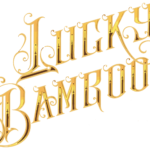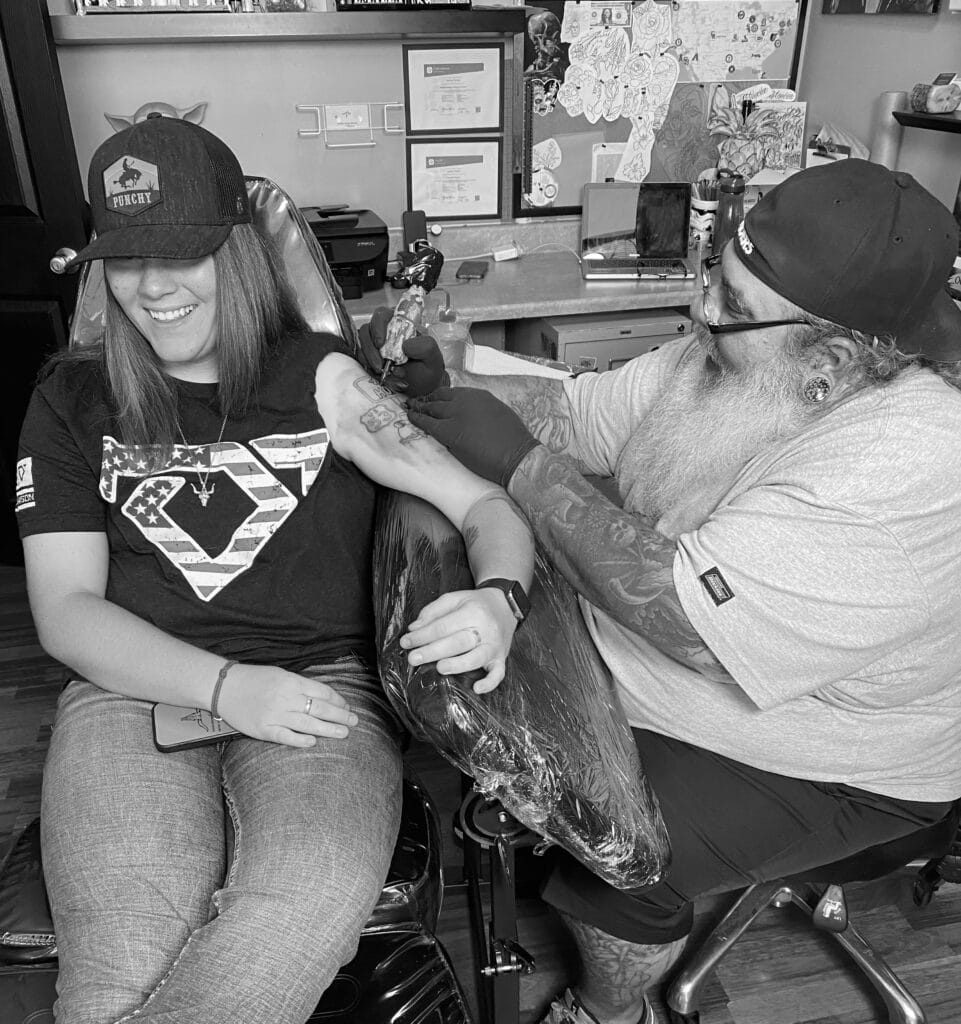THE JOURNEY OF A TATTOO ARTIST CAN BE HARD
Like other forms of the creative arts, an illustrator has to metaphorically travel many miles on the path before they can become a tattoo artist. Many steps are involved. Some obstacles. Commitment. Determination.
When someone begins the path towards a career as a tattoo artist, one of the first things they’ll need is an innate skill for creating unique works of art. Something that catches the eye and that others love to look at. You need to put yourself out there and ask for brutally honest opinions. Sometimes someone may think they’re a great artist, but they may be sadly very wrong. The only way to really know is to rely on direct honesty and be open to the truth. Sometimes the truth is very difficult to accept.
Once a person establishes whether they are a good or bad illustrator, next they need education regardless of the answer. If you are a bad artist, it’s possible to become good through education and a mentor. If after working hard during this process, and you are still getting mixed or bad reviews, it just may not be the vocation for you. If you were already good, education will only make you better by learning techniques and skills you may not have had before.
After you’ve honed your skill through practice and education, now is the time to start translating that into tattooing. Drawing and tattooing are NOT the same. They are completely different skill sets. Though nearly all established veteran tattoo artists won’t consider taking on an apprentice without producing some sort of skill in tattooing, such as practice on fake skins, some may. It’s better to invest in a decent machine, buy some fake skins and inks, and study the actual skills needed to tattoo.
Some of the most basic skills are hand speed, needle depth, angle, voltage (machine speed) vs hand speed, and so on. A prospective tattoo artist will likely spend many hours practicing doing lines, over and over and over. If you can’t master the most basic of actions, you simply won’t make it as a tattoo artist. After you learn the fundamentals, then you’ll need to produce “completed” tattoos on fake skins. You’ll need these for your portfolio for your potential mentor to look over.
If a person has demonstrated that they indeed have artistic skill, some art education, and the basics of tattooing, they may be ready to look for an apprenticeship. Before you move forward, you will need to have a comprehensive portfolio of completed works of art, including your practice skins. If you are deemed ready and get your chance to become an apprentice, don’t expect to be tattooing for quite a while. Likely during this time, you will be learning. You will also be setting up and breaking down for tattoo sessions. This is done so that these necessary sanitary practices become second nature.
Only after you have proven to be ready to your mentor will you be ready to do your first in studio tattoo. It will most likely be monitored by the mentor to make sure you are doing everything correctly. This will probably be the standard for your first several tattoo sessions, or until your mentor is comfortable leaving you on your own.
The last major stage would be to establish yourself in the tattooing community. A new artist needs to spend a good amount of time self promoting so that they can build a client base. It will take some time before a new artists schedule starts to fill up, so patience and determination are very important if they want to make it.
With all that has been mentioned, why would anybody want to become a tattoo artist?
SO WHY BECOME A TATTOO ARTIST?
Well, once you are established and have a good reputation, a tattoo artist can make a rather comfortable living. The tattoo artist can be the rare exception to the “starving artist” trope, if they’re good. The same can’t be said of most other art forms, such as music and painting. It’s far more difficult to make any money in other forms of art. A tattoo artist has a much greater chance at becoming successful in their chosen industry.
It’s easier to be able to establish a family, buy a home, pay for vacations, retire younger, etc if you make decent money and know how to properly manage it. Some tattooers also venture into other investments or businesses, which just furthers their ability to take care of their families.
Since most real tattoo artists love the process, they get to do what they love for a living. That’s everyone’s dream, isn’t it? Nobody wants to wake up each morning and dreading going to work. That’s not to say that there are days that tattooers don’t feel that way, it’s human nature. However, in the most part, they don’t dread going to work, and quite a bit of the time, look forward to it. Being passionate about seeing a work of art come to fruition on their client is a blessing.
Leaving a legacy is also a good reason. Their artwork will live on, even after both the artist and the client have passed on through images shared. It helps if an artist self publishes books showing off completed tattoos. These books will remain after we are gone.
Through all the hardships on the road to becoming a tattoo artist, the benefit outweigh the negatives. If you have skill, patience, passion, and determination, the life of a tattoo artist can be really nice.
If you’d like to read more about the life of a tattoo artist, click on the button below to read our article!
ARE YOU READY FOR YOUR NEXT TATTOO?
If you’re ready to get your next tattoo done, schedule an appointment with an award-winning tattoo parlor. Here at Lucky Bamboo Tattoo, we have some of the best and most experienced tattoo artists in Utah and the Salt Lake City area. We can tattoo any style you’d like, and our artists can even design your next piece as well.
Come see why we have been voted “The Best Tattoo Studio In Utah” for several years in a row.
Lucky Bamboo Tattoo understands that tattoo collectors searching for the best tattoo shop in Utah comes with a big responsibility and we here at LBT are ready to fulfill your tattoo needs.

